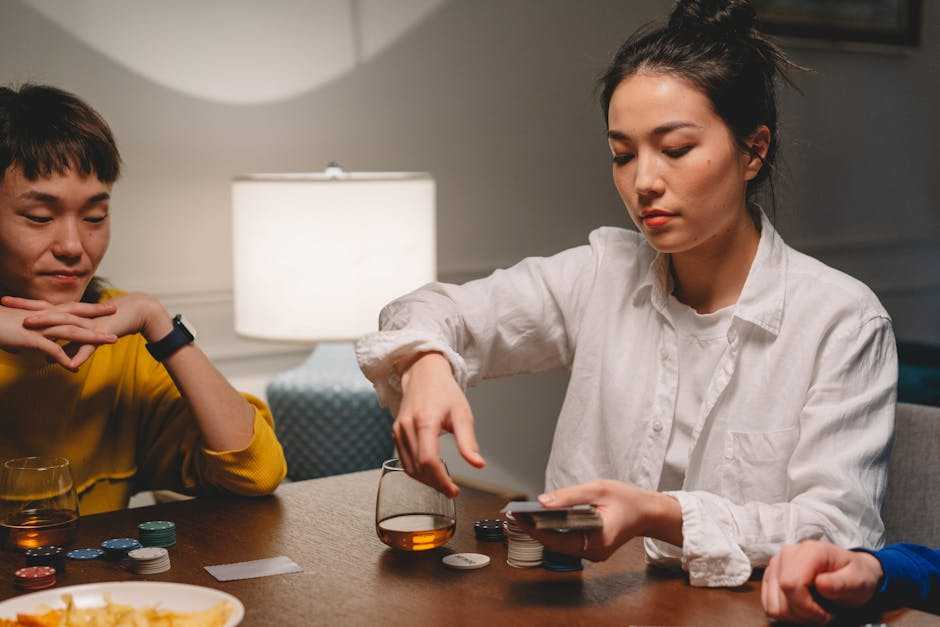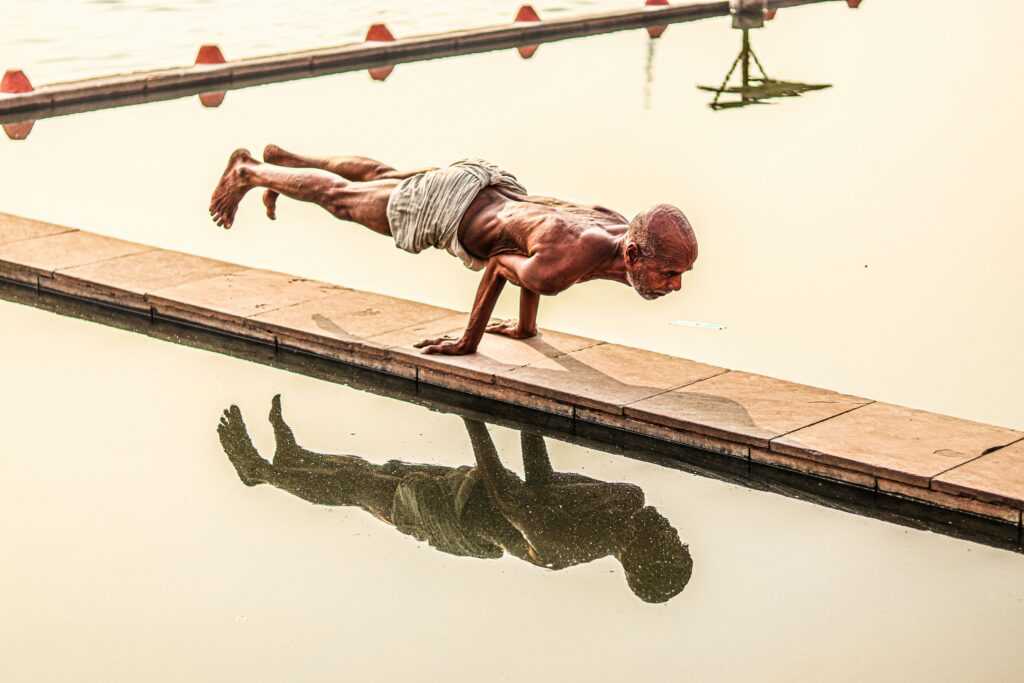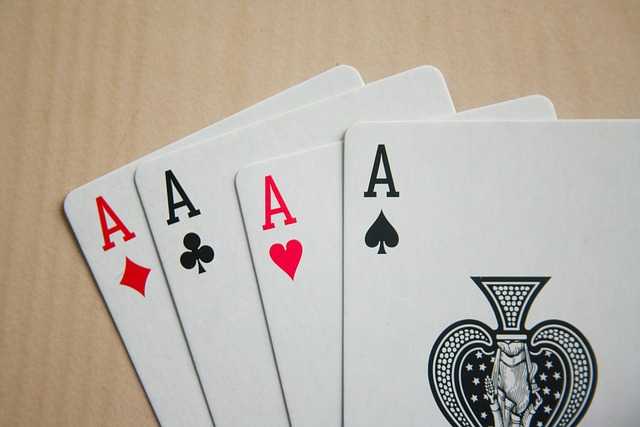Why Physical Activity Matters at the Tables (or Screen)
Gambling doesn’t ask much from your body. Whether you’re parked in front of a slot machine, locked into an online poker room, or grinding through a blackjack session, your body stays still while your brain works overtime. That immobility adds up. Hours can slip by without you noticing you haven’t moved—and it takes a toll.
This kind of sedentary behavior slowly chips away at your ability to make good decisions. Your focus dulls, your stamina drops, and mental fatigue sets in quicker than you’d think. And when your edge depends on clarity and self-control, that physical stagnation becomes a real liability.
Movement doesn’t just wake you up— it tunes your brain. Even light activity gets your blood moving, sharpens your focus, and helps you think clearly when it counts. Whether you’re playing for fun or serious stakes, building time for movement into your routine is one of the smartest strategies you can make.
The Link Between Movement and Mental Clarity
You don’t need to hit the gym for hours to feel the effect. Just moving—standing, walking, stretching—can wake up your brain in ways that impact how you play. Light exercise increases blood flow to key cognitive centers. That translates into better focus, quicker reaction time, and sharper decision-making. In gambling, where mental fatigue can creep in fast, staying physically engaged gives you that edge.
More than that, physical activity helps buffer against impulse-driven moves. When your body is grounded and your brain is getting the oxygen it needs, it’s easier to spot bad bets and resist those heat-of-the-moment calls. You stay in control longer. That matters, whether you’re grinding at a poker table or running a blackjack streak online.
The bonus? Staying active—even in small bursts—helps reduce overall tiredness and extends your patience. You’re less reactive, more deliberate. That’s exactly where you want to be when real money, or serious strategy, is on the line.
Practical Ways to Stay Active While Gambling
Spending hours locked into a screen or glued to a table can wear on your body and your mind. But you don’t need a gym to stay sharp—you just need a plan.
Start with low-effort desk or chair exercises. Leg lifts, shoulder rolls, and seated torso twists reset your posture and help combat the slump that sets in after too much stillness. Wrist circles and neck stretches keep tension from building up while you focus. None of it’s flashy, but all of it helps.
If you’re grinding online, set a timer. Every 30 to 60 minutes, stand up. Walk a few laps around the room. Stretch. Fill your lungs and give your eyes a break. Movement clears the mental fog and resets your focus, especially during long sessions.
At a brick-and-mortar casino? It’s even easier. Walk the floor between hands or machines. Skip the elevator—use the stairs. Carry water, not just coffee. Staying hydrated keeps nerves level, and walking keeps blood (and ideas) moving.
Whether you’re playing for pennies or pots, keeping your body in motion helps your mind stay ready.
Real-World Benefits: From Casual Gamers to Pro Players
It’s no longer just about how well you read the room or calculate odds. More gamblers—especially serious ones—are treating fitness as part of their edge.
Take Nick Petrangelo, a top-flight poker pro. He credits regular strength training and cardio workouts for keeping him sharp during 12-hour tournament days. No fancy supplements or biohacking. Just discipline and sweat. Same goes for a growing number of online grinders who log high-volume play; many report sharper focus and fewer tilt sessions after adding short workouts or yoga into their daily grind.
Mobility matters too. Some older players have turned to stretching and mobility drills, not to shave minutes off a 5K, but to survive multi-day live events without stiffness or back pain. Simple stuff like walking laps during breaks or doing quick stretches between hands helps endurance.
What’s becoming clear is that energy management—not just chip management—is a game within the game. Players who don’t crash late in long sessions consistently outperform those who slump. Being fit isn’t about vanity here. It’s about having stamina when your opponents are mentally fried.
It’s no silver bullet, but it’s a sharp tool—and more players are reaching for it.
The Mind-Body Connection in Gambling Strategy
Gambling often tests more than just your skill—it tests your emotions, focus, and decision-making under pressure. This is where physical activity becomes a key, often overlooked, advantage.
How Movement Regulates Stress Hormones
When you’re physically active, your body releases endorphins and reduces levels of cortisol (the stress hormone), helping you stay level-headed in high-stakes moments.
- Light physical activity acts as a stress buffer
- Endorphin release improves mood and reduces tension
- Lower cortisol means clearer, calmer thinking
Emotional Control Under Pressure
In gambling settings—especially competitive ones—emotions can run high. Physical fitness contributes to emotional resilience, giving you the tools to manage tilt and frustration.
- Better oxygen flow to the brain promotes mental clarity
- Movement increases dopamine, supporting mood regulation
- A fit body supports focus during unpredictable emotional swings
Better Self-Regulation = Smarter Decisions
Physical activity trains more than your body—it improves your ability to pause, reflect, and respond rather than react. That’s critical when strategic decisions count.
- Active individuals tend to manage impulsivity more effectively
- Movement routines foster mindfulness and self-awareness
- Focused decision-making often relies on both mental energy and physical balance
For more ideas on building mental discipline through wellness habits, check out this resource:
Final Thoughts: Move More, Tilt Less
Movement Doesn’t Have to Be Extreme
You don’t need an intense workout routine to see results. What matters most is consistency and awareness. Incorporating small moments of activity into your gambling routine can help maintain mental sharpness and emotional balance.
- Stretch your legs regularly—set a timer as a reminder
- Try breathing exercises or posture shifts during sessions
- Take advantage of natural pauses to walk or hydrate
Consistent Habits Yield Big Payoffs
Micro-movements, short walks, or even mindful breaks build up over time. These small routines reduce fatigue and increase overall stamina—especially during long gaming sessions.
- Reduced aches and stiffness improves focus at the table
- Movement helps regulate energy during marathon sessions
- Better physical well-being leads to better decision-making
Stay Sharp—Your Bankroll Will Notice
Ultimately, gambling successfully isn’t just about strategy—it’s about staying alert under pressure. Physical movement supports the mental clarity and emotional regulation needed to avoid tilt and stick to your game plan.
- Regular activity supports long-term focus
- Balanced body = balanced mind
- Smart play starts with feeling your best


 Otis Rogerstics is a dedicated author at GambleFitnessSplash known for his sharp insights on the relationship between technology, sports, and healthy living. His work focuses on practical strategies and digital tools that help readers improve both performance and balance.
Otis Rogerstics is a dedicated author at GambleFitnessSplash known for his sharp insights on the relationship between technology, sports, and healthy living. His work focuses on practical strategies and digital tools that help readers improve both performance and balance.

